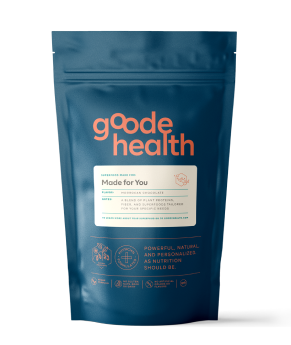Written by: Alyssa Paglia, RD, LD, CLT
What is longevity?
Longevity refers to the length of someone’s life.
While your genes have some influence on how long you’ll live, lifestyle choices such as diet, exercise, stress management, sleep, and your environment can also impact the length and quality of your life.
The average life expectancy in the United States has increased by over 25 years in the last century.
In 1920, the average American only lived to age 53. Thanks to medical advances, public health campaigns, and healthier lifestyles, life expectancy rose to nearly 79 years by 2019.
Unfortunately, this number has declined slightly since the start of the COVID-19 pandemic, which means it’s more important than ever to take care of yourself.
What is biohacking?
Biohacking uses science to help people make small but significant improvements to their health and well-being through personalized interventions.
These interventions usually involve diet and lifestyle changes aimed at optimizing brain health, metabolism, and longevity.
The goal of biohacking is to extend the number of years you can live in good health and without major illnesses – also known as your “health span”. Extending your health span is about more than just living a long life. It means improving your quality of life and your ability to engage in daily activities, maintain independence, and live without pain or disease.
How to determine the best foods for your body?
As a registered dietitian, I find myself frequently saying "It depends..." when answering this question for my patients.
This is due to the fact that each person has unique dietary needs, and what works for one person may not work for another. This concept is known as “bio-individuality.”
What factors influence bio-individuality?
Gut health
The microbes living in your gut (also known as your gut microbiome) affect how your body absorbs and responds to the food you eat.
And according to this study, it’s a two way street! The food you eat also changes your gut microbiome. The microbes in your gut have been shown to influence your risk of developing chronic diseases like inflammatory bowel disease, obesity, type 2 diabetes, cardiovascular disease, and cancer.
Gut health also plays a role in food sensitivities and intolerances.
Food intolerances occur due to not having the right enzymes to digest certain foods (think lactose intolerance).
Food sensitivities are an immune reaction to certain foods, and symptoms can be delayed for up to 72 hours after eating. Food sensitivities usually develop as a result of an unhealthy gut lining, sometimes called “leaky gut”.
The best way to determine which foods you are reacting to is to work with a Registered Dietitian who specializes in gut health and elimination diets.
If your symptoms include difficulty breathing or swelling of your mouth or airway, you probably have a true food allergy (also known as an IgE reaction) and you should consult a Board Certified Allergist/Immunologist.
Genetics
Exploring your family's ancestral history can be a helpful starting point for biohacking.
Your ability to digest and metabolize certain foods is connected to the foods that your ancestors ate regularly.
For example, the Inuit of Greenland are better able to metabolize fatty meats, while people of southern European ancestry are optimized for a plant-based Mediterranean-style eating pattern. The food you eat can also influence how your genes behave. This is known as “nutrigenomics.”
Metabolism
Metabolism is the process by which your body converts food into energy.
The phrase “balance your plate” typically refers to the balance of carbs, protein, and fat (also known as macronutrients) in your meal.
Your ideal balance of nutrients is unique to your body and can be influenced by several factors including age, sex, activity level, hormones, pregnancy, stress, and illness.
Some people feel better on a high-fat diet while others prefer more carbs.
In order to determine the best balance for your body, pay attention to cues such as hunger, satiety, cravings, energy levels, and moods. Consider creating a food journal, and adjusting your macronutrients until you find what feels best.
Micronutrients and Your Health
It’s also important to make sure your body is getting the right amounts of vitamins and minerals, also known as micronutrients.
92% of Americans are deficient in at least one micronutrient.
Micronutrient deficiencies can lead to something called “hidden hunger” which is when your body thinks it is starving even though you’re eating plenty of calories. This can lead to food cravings and never feeling full or satiated after meals.
How Goode Health Can Help
Goode Health addresses hidden hunger with a unique mix of polyphenol antioxidants, CORE8™ Micronutrients, four kinds of high-grade plant-based protein, and prebiotic fiber.
To learn more about our Wellness Blend and unlock personalized wellness recommendations based on your needs, take our nutrition quiz.

